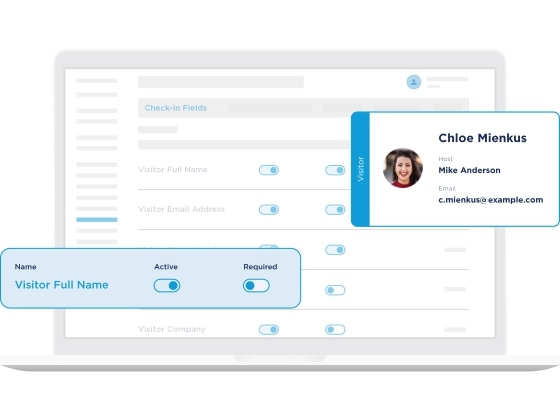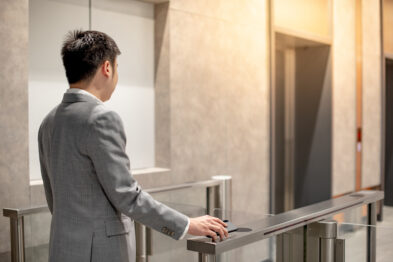In the ever-expanding information sinkhole (a.k.a the internet), shopping for the optimal access control security solution for a commercial building feels more like being blindfolded, sailed out to sea, and dropped into the Great Pacific Garbage Patch.
Security is in your car, on the door of your home and at the entrance of every store you visit. It is literally everywhere, yet somehow it keeps spreading. With the global security market topping $84.5 billion in 2018, some people may think shopping for ironclad security solutions is easier than ever. But, they’d be wrong.
But Genea wants the experience to be easier. So, here are some all-in-one basics for access control security for commercial properties.
For Commercial Properties
Security functions on micro and macro levels throughout an organization. For instance, think of it like a James Bond movie — after deactivating the alarm system, he must scale a fence. Commercial property owners and security teams must first decide on the security systems to implement. Here are the options:
- Security cameras
- Alarm systems
- Security guards
- Lighting (motion lights or deciding how to light the property)
- Fencing (and we’re not talking the sport)
- Access control
This article will focus on the different types of access control. However, most of these systems integrate to provide properties with a robust security solution.

Physical Access Control
Access control security takes two forms—physical and software. Physical devices control the traffic in and out of a commercial space. Therefore, commercial property owners and businesses must decide how modern of a system they need. Keep in mind that poorly designed systems add labor and time while slowing company productivity. Faulty access control security will lead to downtime and require costly maintenance. Additionally, in a worst-case scenario, it will expose the facility to malfeasance.
Here are some security physical access control types:
- Key Cards
- Lock and Key
- Mobile Devices
- Biometric Scanners
- Gates
The type of access control security being used can define a property. For example, companies looking for modern access control solutions should avoid commercial properties with outdated magnetic strip key card readers or proximity readers using hackable 125hz signals.
Access Control Software Security
Access control software interacts with physical access control. The combination gives commercial properties a faster, more efficient way of assigning and terminating access control credentials.
Take Marco. Marco hires a new employee at a retail franchise selling outdoor gear for the modern-day explorer. The new employee needs access to the stock room where Marco keeps the vintage polos.
With robust commercial access control software, administrators assign access and restriction points to a new employee’s physical access control device (e.g., a mobile phone). The process is quick and easy. Most of all, Marco’s polos are secure.
However, access control software itself needs security.
Take the time to understand the kind of security protocols used in access control software. Learn how and what kind of encryption happens when user data transmit between software and hardware.
- On-premise vs. cloud-based: Data may be stored in one of two places: on-premise or off-site in a cloud-based system of the security provider. Unlike on-premise, cloud-based systems shift the security burden to the provider.
- Role-based, discretionary, and mandatory: These are different ways access control credentials get shared within an organization and each has varying levels of security. Learn more here.
- Compliance Standards: Legal requirements like the General Data Privacy Regulation (GDPR) provide a security baseline for access control. However, Genea goes above and beyond by regularly updating and gaining new certifications, including SOC 2. For more information about how Genea implements industry-leading security practices, click here.
Selecting a Secure Access Control System
How an access control system integrates into the ecosystem of a commercial property is essential. Additionally, property teams seeking elite security, versatility, and convenience should consider a cloud-based, mobile system that runs on non-proprietary hardware.
Most access control companies require property managers and owners to install new hardware that works exclusively with their software (i.e., proprietary hardware). In other words, property managers will likely need to rip-and-replace hardware. Additionally, these SaaS companies lock customers into a software subscription. Conversely, Genea Security functions on non-proprietary hardware, meaning it works with most existing card readers.

When vetting a potential access control system, consider these questions:
- How is data encrypted during transmission?
- What protocols are used to data store and secure data?
- How do credentials get assigned and terminated?
- What integration solutions does the system offer?
- Do you offer 24/7/365 customer support?
- Does the system work with non-proprietary hardware?
- Is there multi-authentication protection?
Looking to boost access control security? If so, talk to one of our experts.



